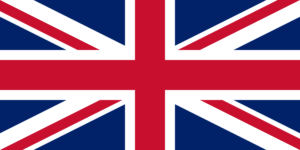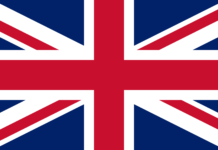Exclusive interview with Israeli MFA Spokesman Emmanuel Nahshon by Dragoş Ciocîrlan, RADIO ROMANIA’s permanent correspondent to Jerusalem
Relations between Jerusalem and the European Commission
 Emmanuel Nahshon: I think we have to make a difference between European Union’s institutions and the member states of the European Union. And we see a strange and interesting phenomenon. The member states are pro-Israeli, we have very good contacts with almost all of the EU member states and those are very good and deep contacts. But when it comes to the European Union institutions such as the European Commission, suddenly there are difficulties. Maybe it is due to the fact that some of the bureaucrats in Brussels do not understand reality, they don’t understand that Israel is a very good and close friend of Europe. Maybe they bring their own misconceptions about Israel to their work and it is something that, of course, we cannot accept.
Emmanuel Nahshon: I think we have to make a difference between European Union’s institutions and the member states of the European Union. And we see a strange and interesting phenomenon. The member states are pro-Israeli, we have very good contacts with almost all of the EU member states and those are very good and deep contacts. But when it comes to the European Union institutions such as the European Commission, suddenly there are difficulties. Maybe it is due to the fact that some of the bureaucrats in Brussels do not understand reality, they don’t understand that Israel is a very good and close friend of Europe. Maybe they bring their own misconceptions about Israel to their work and it is something that, of course, we cannot accept.
R: It’s possible to improve?
Emmanuel Nahshon: It’s always possible to improve the relations between Israel and the EU institutions and for us is a high priority. We are working very closely with the Commission, with the Council of Ministers, with the European Parliament, of course, and the idea is to explain that Israel and the EU are very close, that we share the same challenges, that we look at the world the same way, that we share the same values. And we do not want to be in the situation in which some bureaucrat in Brussels takes negative decisions with regard to Israel which do not reflect the deep friendship and solidarity that exist between us.
Trilateral Israel-Greece-Cyprus
Emmanuel Nahshon: To us, the relations with Greece and Cyprus are very important, they have a strategic value. And I think this was also demonstrated in the last days in the trilateral summit that we had in Cyprus with our Prime Minister, the Cypriot President and the Greek Prime Minister. It’s about energy, about economy, but not only that. It’s also about a common vision of a peaceful future for the Eastern Mediterranean. It’s not an alliance against anybody. Everybody can join this alliance. It’s a very good and strong basis for a new phenomenon in our part of the world. We look at the world in the same way, we see, we indentify common security challenges and we identify also common economic opportunities which are realted mostly to energy and gas. So we are going to keep working very closely together and other countries, of course, are welcomed to join us.
Boycott campaign by BDS movement in Europe against Israel
Emmanuel Nahshon: We see mostly in Europe a campaign of BDS – it is a boycott movement against Israel – we see, actually, what I would call an „unruly alliance” of extreme-right movements, extreme-left and extreme Islamists. And all those extremists are coming together in order to try and boycott Israel. It has nothing to do with the territories or the settlements. It’s a hatred of Israel. This BDS is nothing more and nothing less than anti-Semitism. It is a call to boycott the State of Israel as it is. And we are going to fight against this movement, we have already started this fight, either directly, as the State of Israel, but also through our friends throughout Europe, including Jewish communities, including important governments. We have already expressed opposition to such a movement. It’s a danger, but it’s not a danger to Israel, it’s mostly a danger to Europe itself, because it’s a new kind of Fascism, of rasism. Those are people whose state of mind and ideology is an ideology of hatred and distruction. And I think the European countries would do well to unite with us and to fight this phenomenon.
Common interests with moderate Arab countries
Emmanuel Nahshon: Israel shares, actually, common interests and common perspectives with many Arab countries in the region. We are talking about Sunni moderate Arab countries who look with fear at what is going on in terms of extreme Islamism. They identify two enemies: one is Iran and the other one is ISIS. Because both Iran and ISIS want to use violence and religious ideology in order to try and change the Middle East and destroy the existing order. In such circumstances, many moderate countries, including Saudi Arabia, the Gulf states, Egypt, Jordan and other countries indentify that the real enemy is not Israel. Israel was never the real enemy. The enemy is extreme Islamism as it is expressed by Iran and by ISIS. In those circumstances, they engage also in a dialogue with Israel on a series of issues including security-related matters and we believe this a very, very good basis for new alliances in the region. If we want to achieve stability in the Middle East, if we do not want the Middle East to go back to the Middle Ages as Iran and ISIS plan to do, then we need to unite together all the moderate forces.
Israel’s diplomatic priorities for 2016
Emmanuel Nahshon: Foreign Ministry is looking at year 2016 and trying to establish our priorities. The first priority would be the fight against anti-Semitism and delegitimization. In parallel, we try to identify also new alliances, look also at new friendships in the region and beyond the region. We are going to strengthen our ties with Asian countries such as India, China, Japan. So, all of these together are our challenges. We believe that in the actual situation in the Middle East there are a lot of dangers, but there are also a lot of opportunities. And if we play our cards wisely, we are strengthening the contacts with moderate partners in the region and beyond the region, I believe that we will have achieved a lot.
Audio file transcript: Bianca Ioniţă
Rador News Agency








